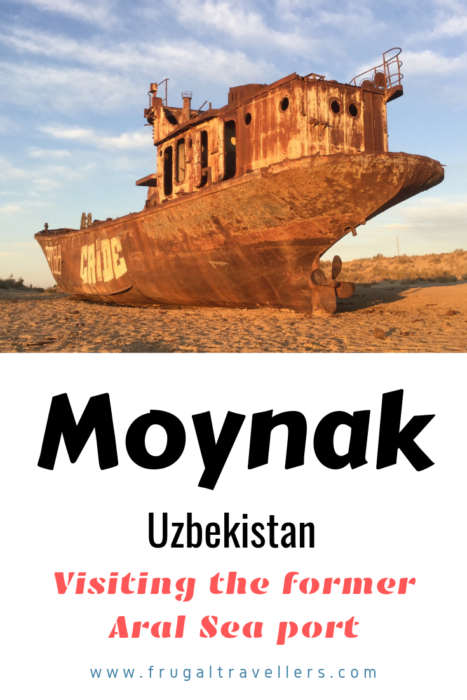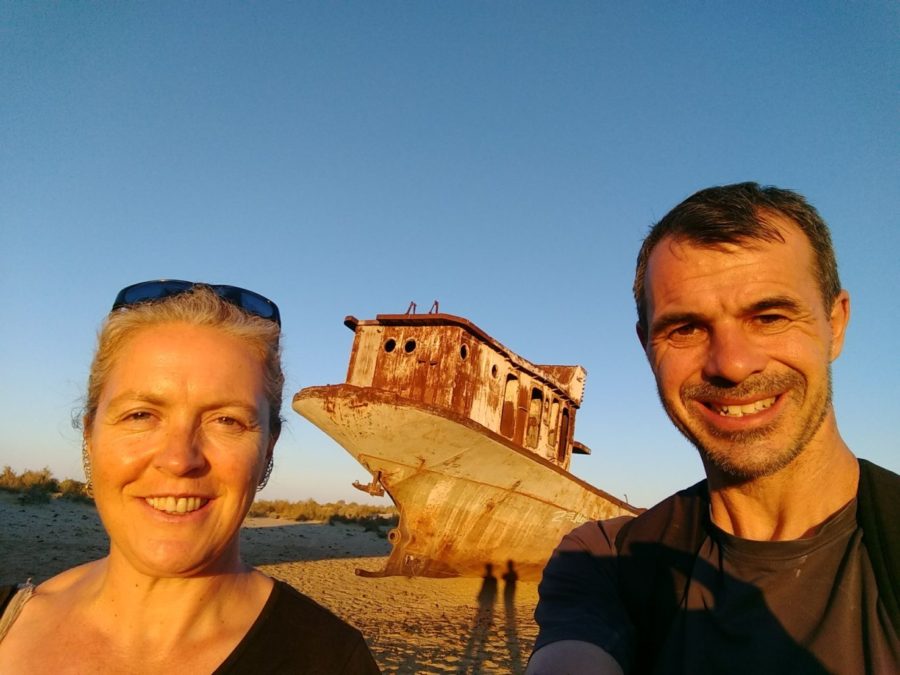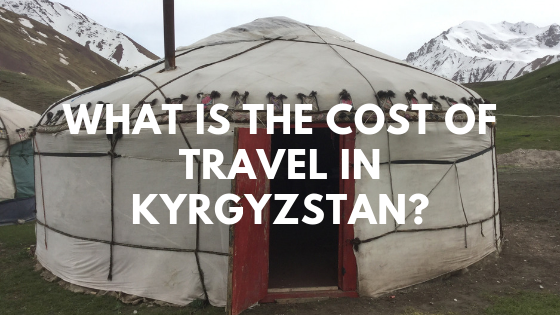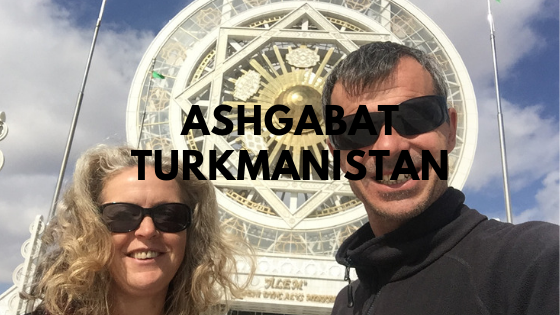Having visited the former port of Aral in Kazakhstan, we decided to see its equivalent on the Uzbek side. Moynaq is now 300kms from the Aral Sea but the Ship Cemetery and museum are definitely worth visiting. There’s no need to hire a car if you want to get there the Frugal Travellers’ way.
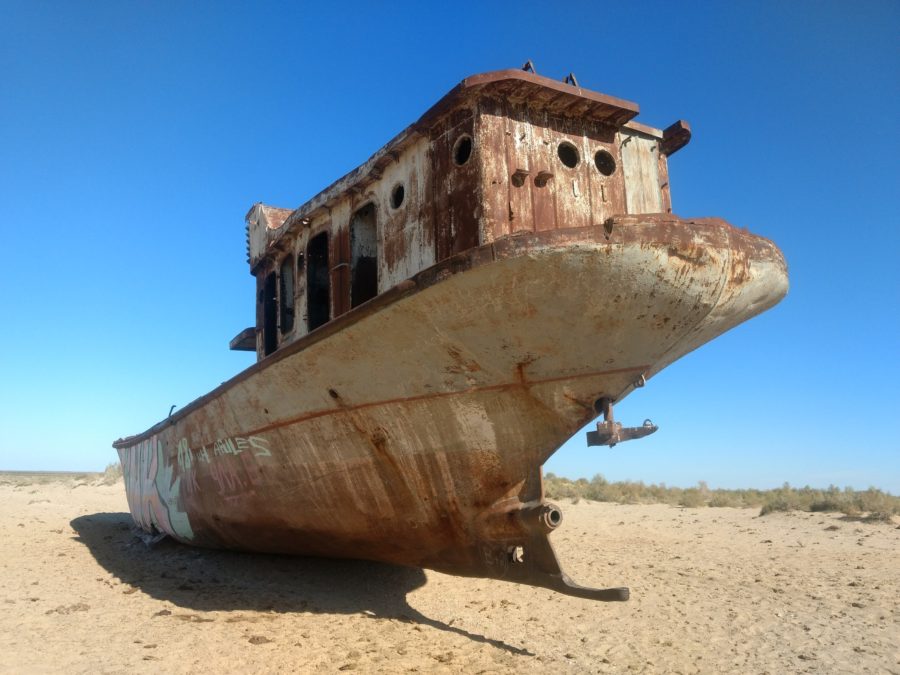
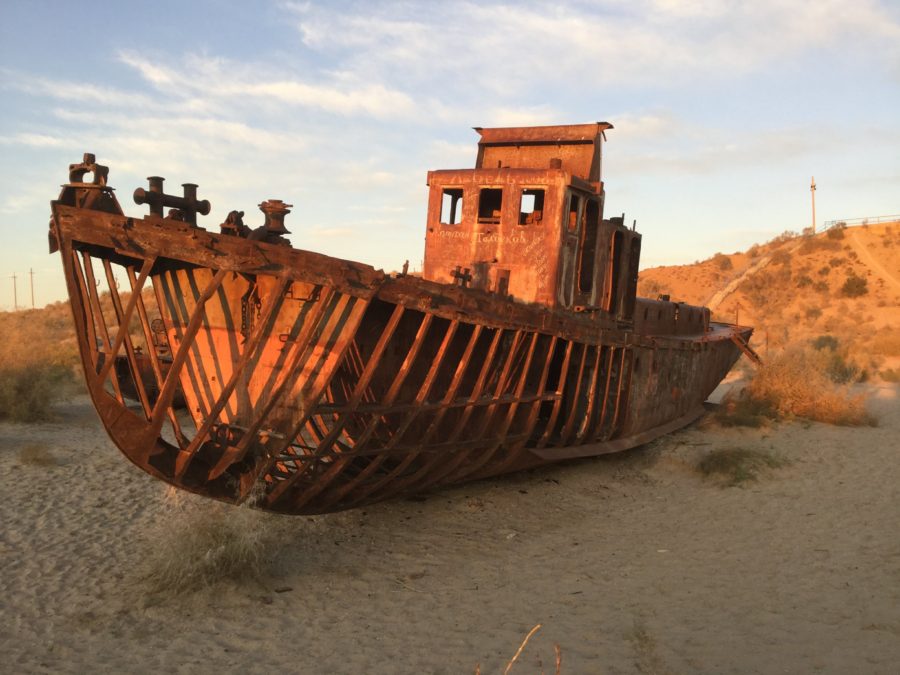
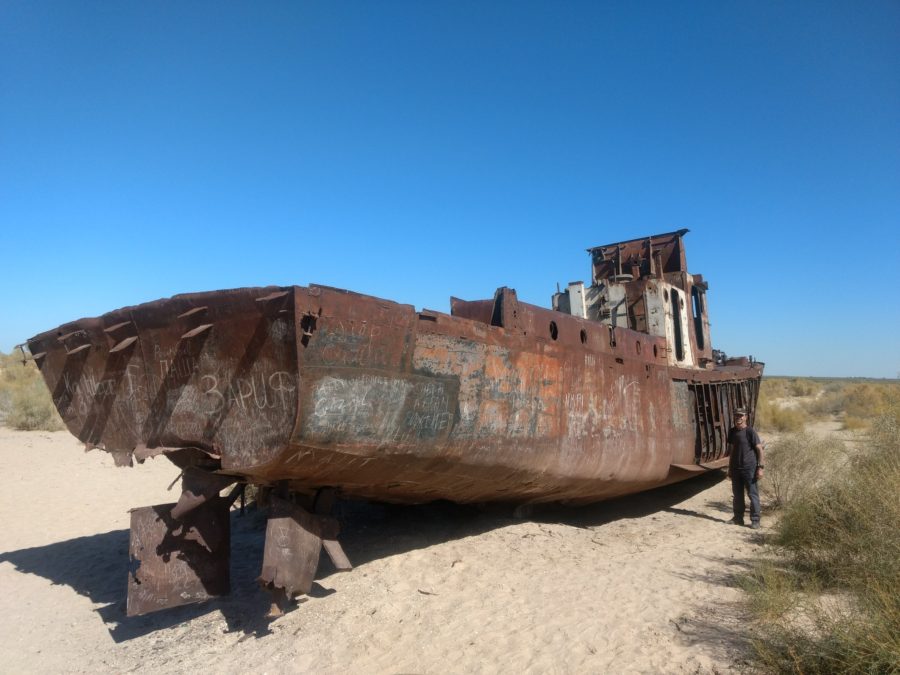
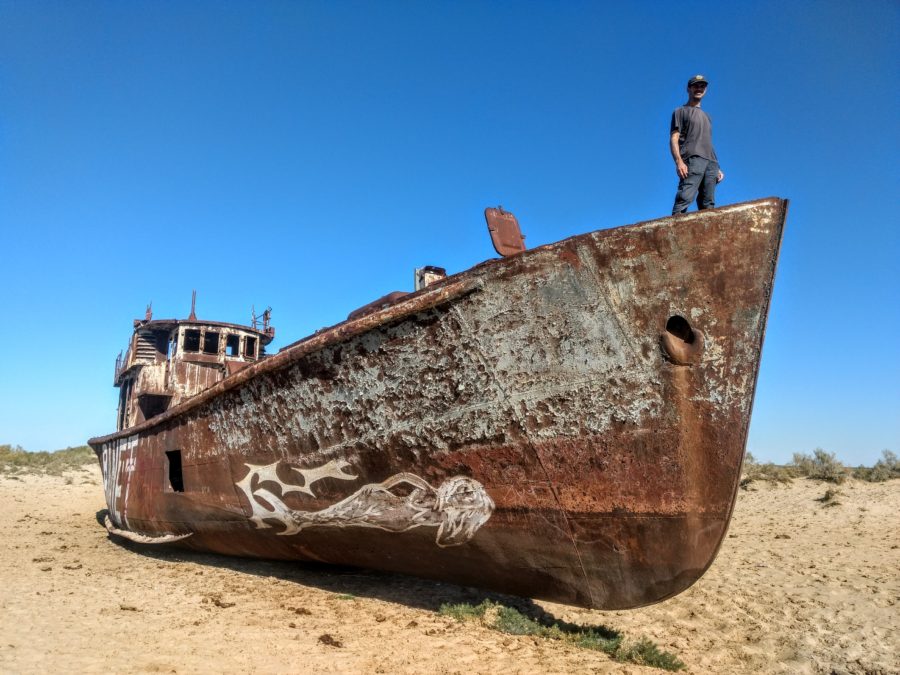
History of the Aral Sea disaster in brief
A government department in the former USSR decided to make Uzbekistan the largest cotton producing country in the world. The only issue – this Central Asian country is mainly desert. In order to get sufficient water, the the Amu-Darya and Syr-Darya rivers were diverted, causing the Aral Sea to slowly but surely dry up.
The satellite images are particularly heartrending, as is the knowledge that Soviet scientists predicted this would happen. It was felt the profits from cotton were of more economic benefit than fishing. Great success… in 1984 Uzbekistan was the leading cotton producer, while the Aral sea continued to recede, until the world’s 4th largest sea had almost disappeared.
A picture tells a thousand words…
and these photos taken by the Moynaq memorial near the lighthouse show the scale of the environmental disaster.
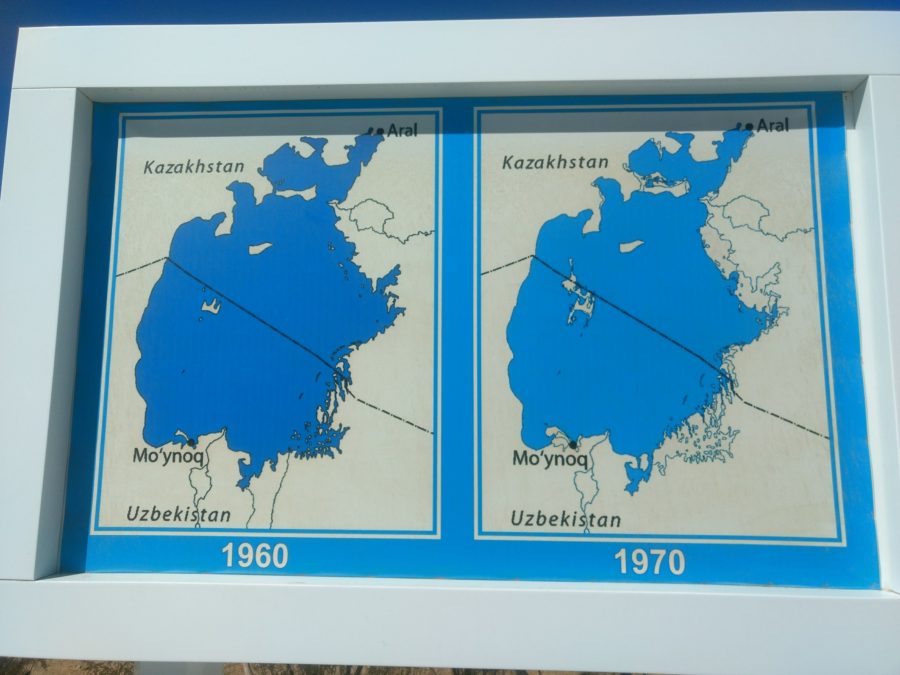
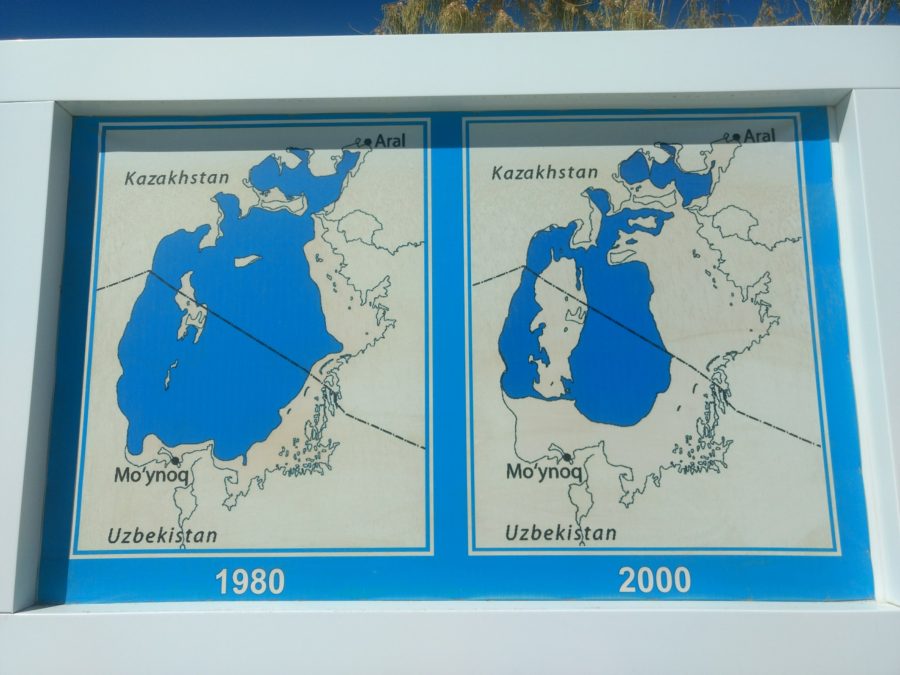
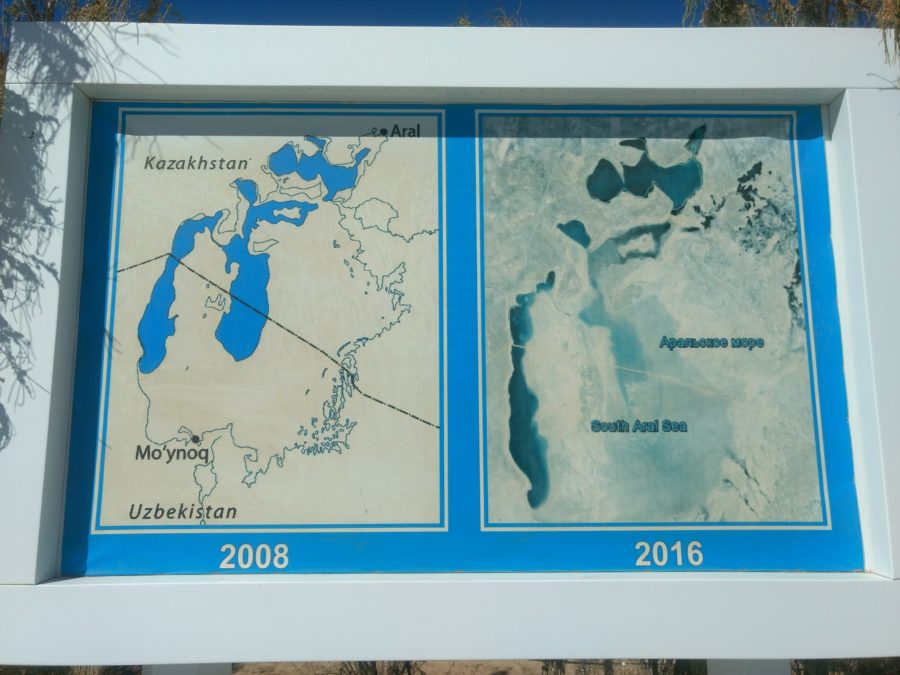
Impact on the port of Moynaq
A staggering 10,000 jobs directly related to fishing were lost in Moynaq. In an attempt to keep the town afloat (a sad pun indeed), fish was still shipped to the canning factory from all over the USSR and its former republics at great expense, until the cannery finally closed in 1998.
We were surprised to see a lot of new development in the town as had read it was a ghost town. Locals said that the government is trying to lessen the visible urban decay by creating new jobs through building and tourism, as the Ship Graveyard is becoming more well known and can be seen on a day trip from Nukus. I doubt it will regain the economic prosperity it enjoyed when it was a bustling port.
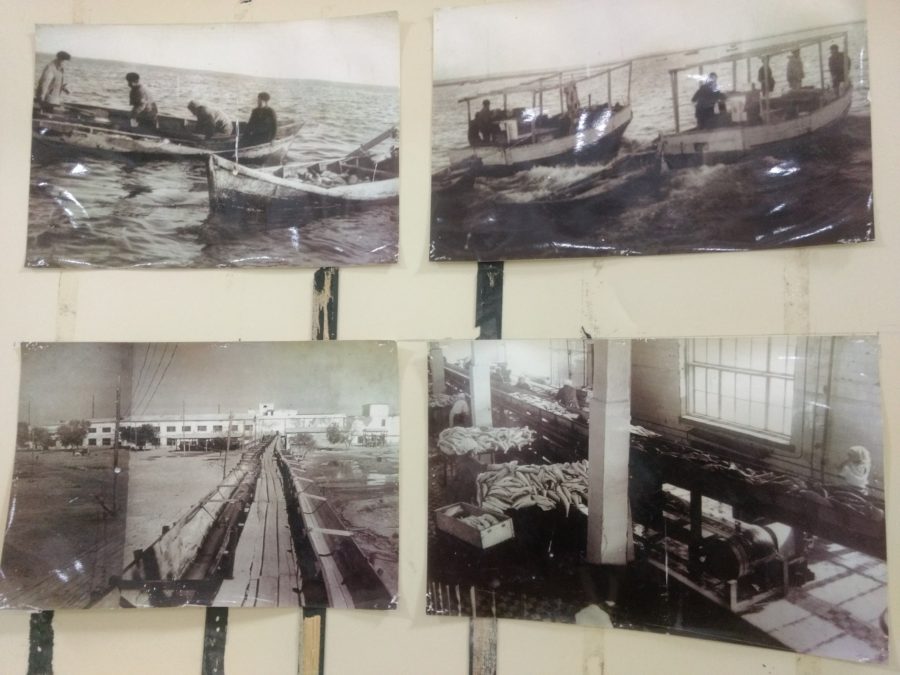
Visiting Moynak on YouTube
Moving on to Kyrgyzstan?
How to get to Moynaq from Nukus
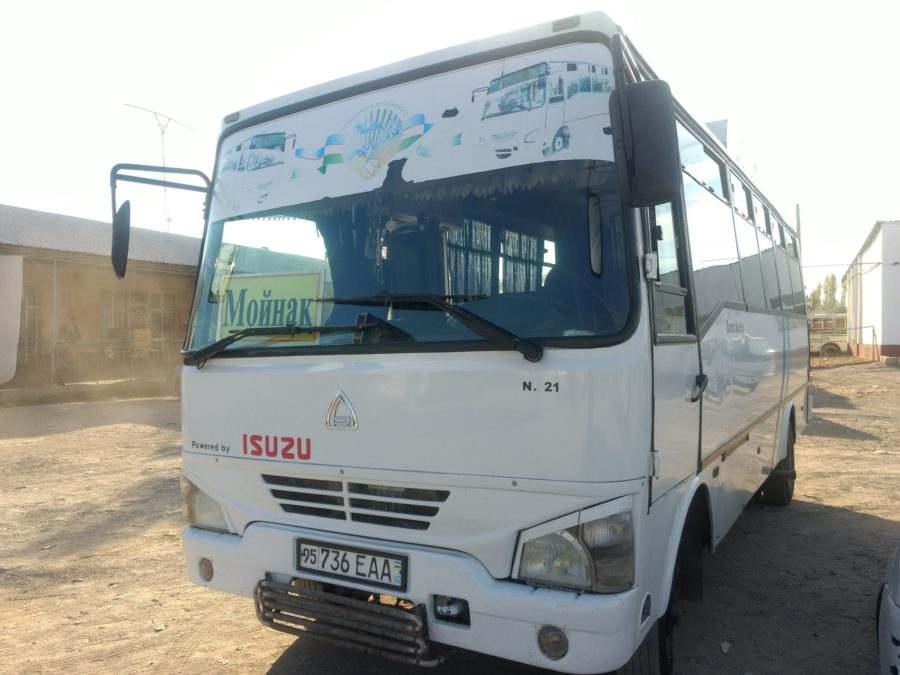
We took the daily 9am bus to Moynaq from the old bus station – a taxi on the street to the station was 5,000som. It is advisable to get to the bus station by 8:30 to get a seat for the 3 & 1/2 hour journey – we arrived at 8am so had to dodge the persistant taxi drivers for half an hour!
The bus costs 13,000 som per person, paid onboard. It stops in Khungrad for 10 minutes – enough time for a samsa seller to get on with warm samsas for 2,000 som each.
Arriving in Moynaq
We arrived in Moynaq at 12:30pm. We’d decided to check out one of the guesthouses in the Lonely Planet Central Asia guidebook but were slightly put off by the 4 young children running around, as needed a good night’s sleep after the noisy yurt experience in Nukus.
Also, the whole point of the journey to Moynaq was to see the derelict fishing boats, left behind when the waters receded. Nine abandoned boats had been moved to the Moynaq memorial. It made sense to head for the yurt camp at the lighthouse.
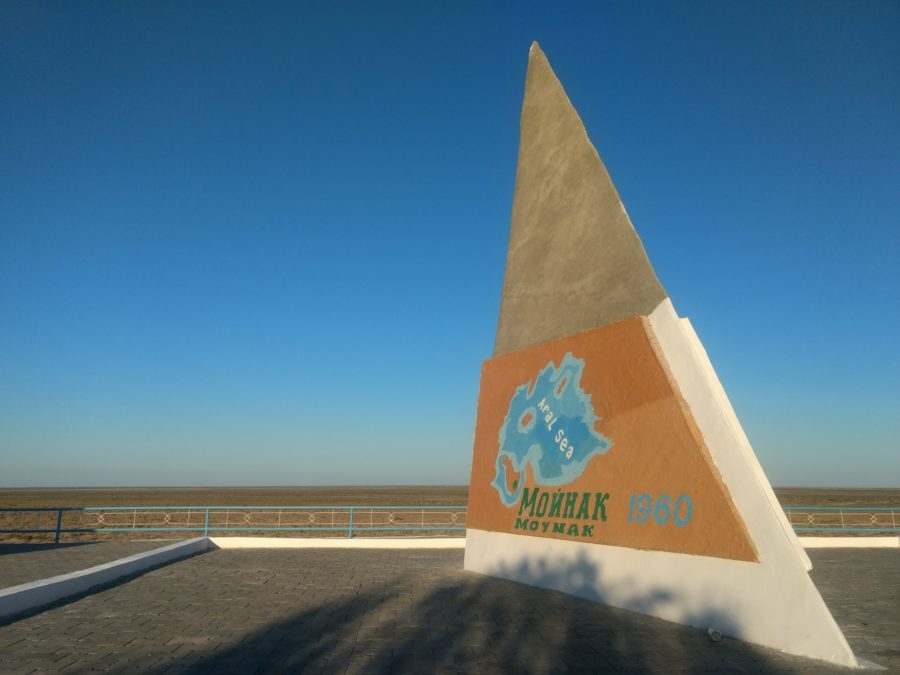
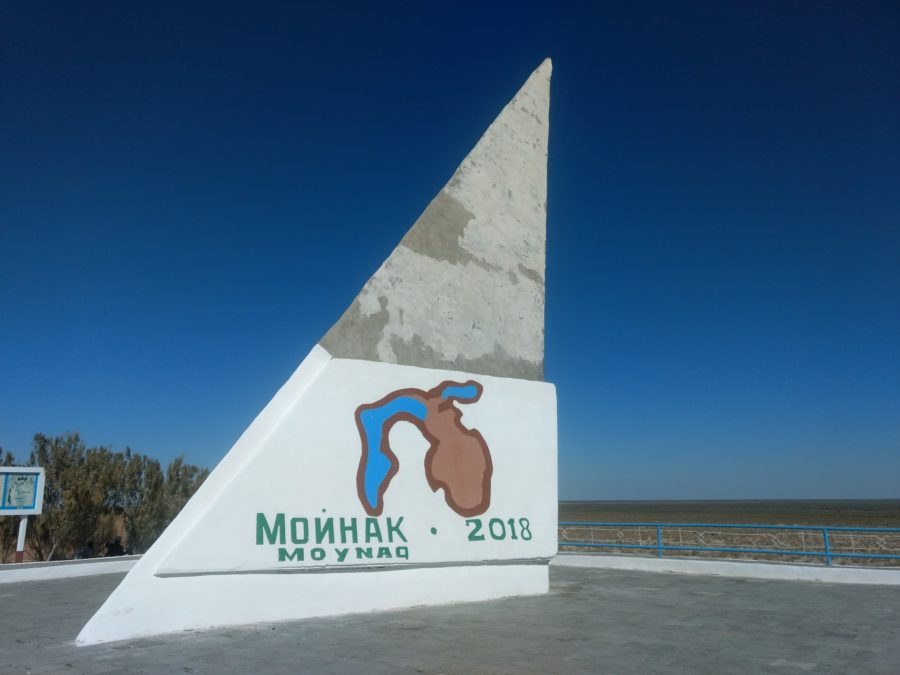
Moving on to Kazakhstan?
Yurt camp at the Moynaq lighthouse
The small No#1 marshrutkas are constantly running along the main road to the yurt camp at the lighthouse. We paid 1,000som each.
We were pleasantly surprised by the yurt camp as had pictured an abandoned camp. The yurts looked new and clean, as did the toilet facilities. After some gentle negotiation, we were charged US$10 per night per person including breakfast. Registration isn’t available but this shouldn’t be an issue if only staying there 1-2 nights.
The food at the yurt camp was surprisingly tasty. We had plov for dinner – were quoted 15,000 som but only charged 10,000 som, so I’m guessing that is the correct price. Beer was available on tap at 5,000 som per 0.5l glass
The yurt camp is open from March until October. It closes for winter.
*UPDATE – We’ve heard from other travellers that the yurt camp was closed when they went there in the last weeks of October. They ended up staying in one of the guesthouses in Moynaq.
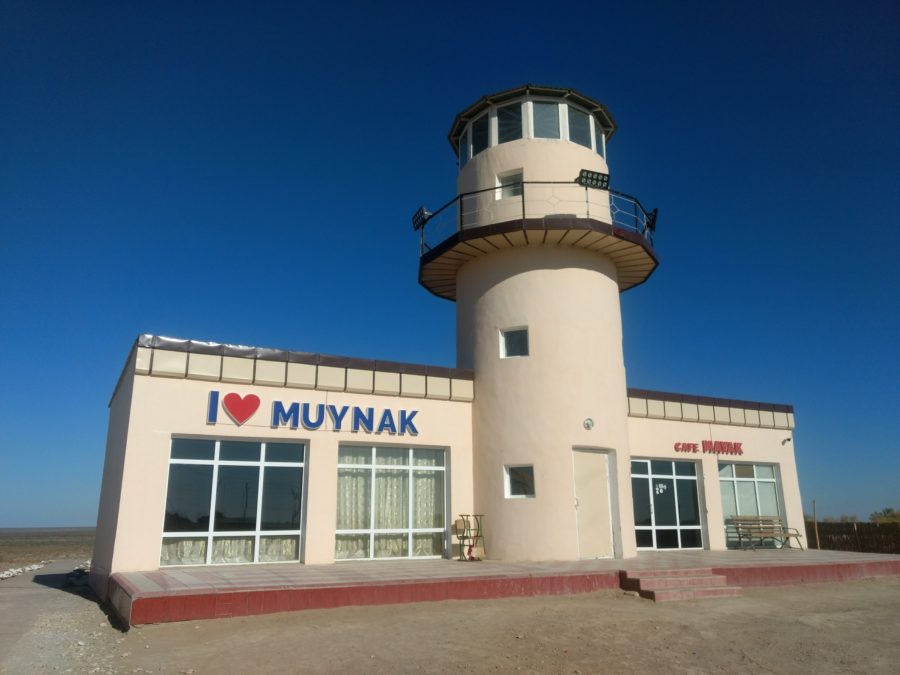
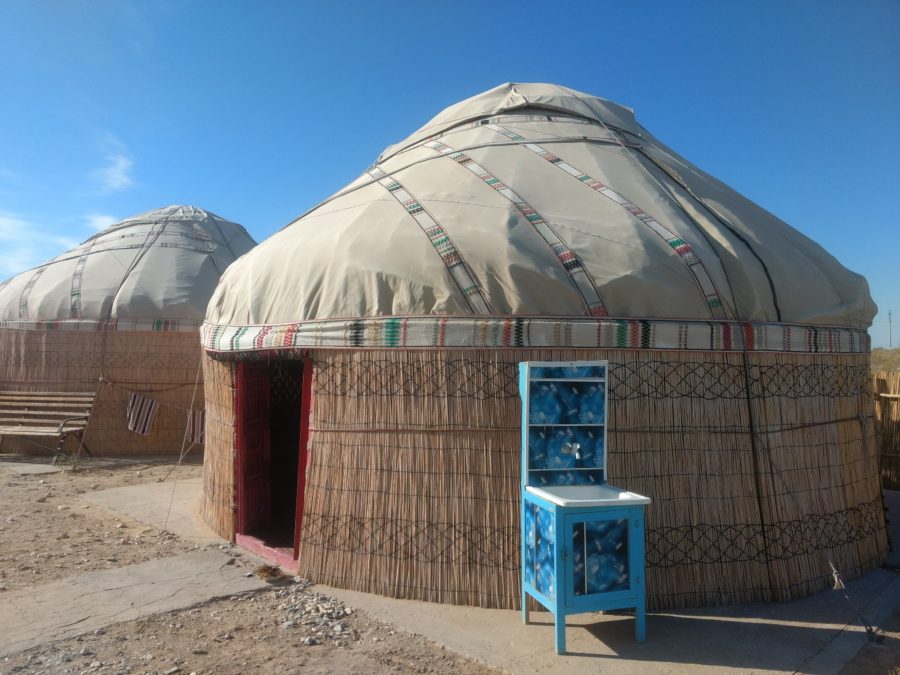
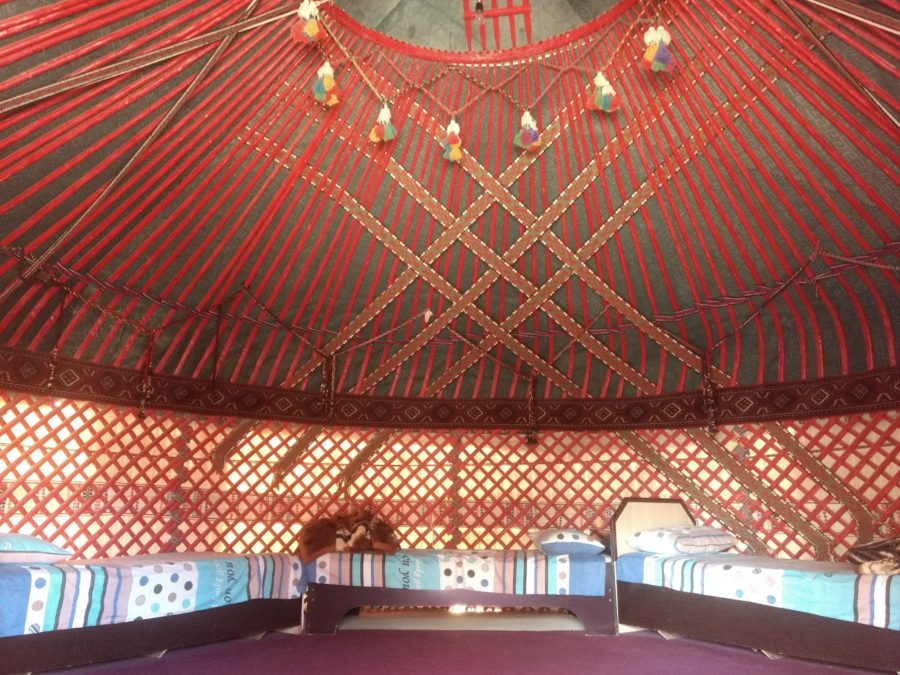
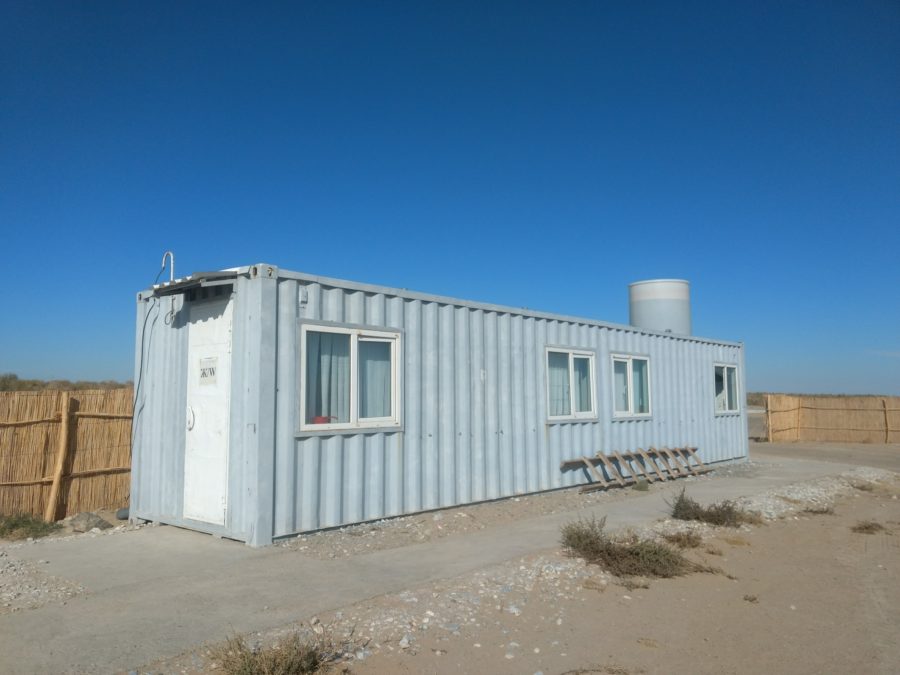
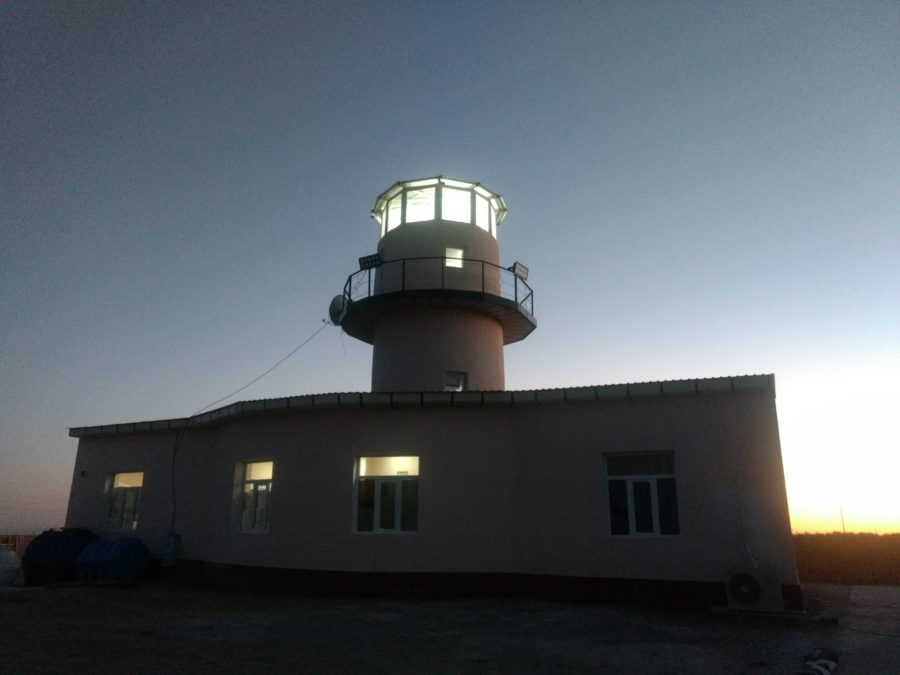
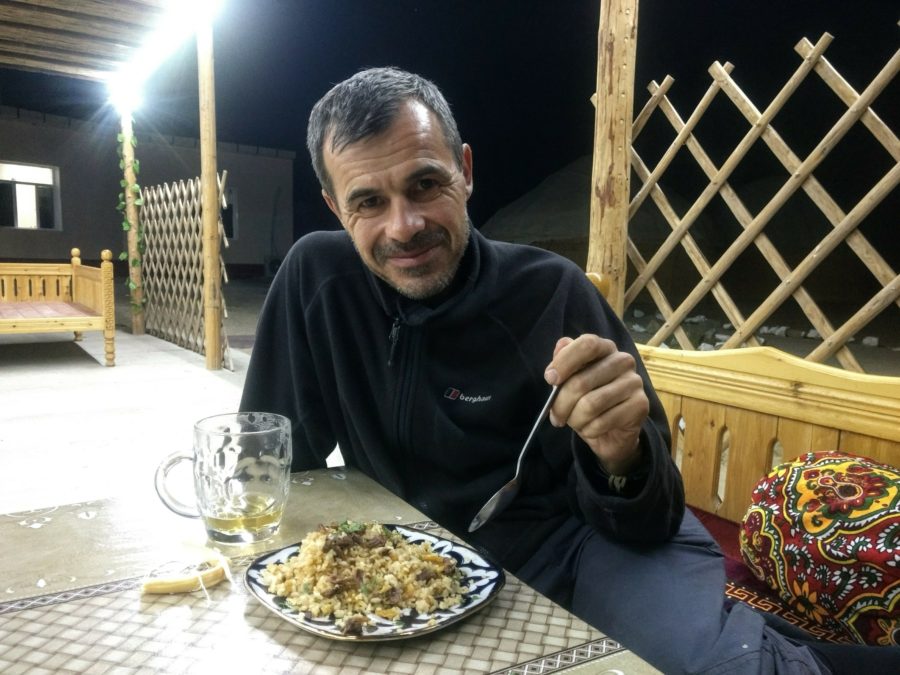
Sunrise and breakfast
Lee got up at sunrise to take photos of the ships – I got up for a quick look but was happy to go back to bed! There was a knock on the door at 8:30am for a surprisingly tasty breakfast. We decided we’d seen our fill of the ships so checked out at 10am and went to explore the town. This was a bad move in hindsight – I would strongly recommend you stay longer at the lighthouse as there really isn’t a lot going on in Moynaq!
Moynaq museum – be aware there is a camera charge when you leave!
We walked the 2km into town, marvelling at all the development going on. There are new buildings all along the main road, still empty as yet. The ship memorial is in one of the most neglected parks I have ever seen – no wonder the gates are locked!
We arrived at the small museum at 10:30am and paid 8,000som each for the entry ticket. We were in there for about 30 minutes, and that was going as slowly as we could, as we knew there was little else to do in the town.
Everything was all friendly with the woman on the door until we went to leave, when she told us there was a 10,000som fee for photos. I think that should have been advised from the start. We didn’t receive a ticket for this charge, so I suspect the money could have disappeared into her pocket!
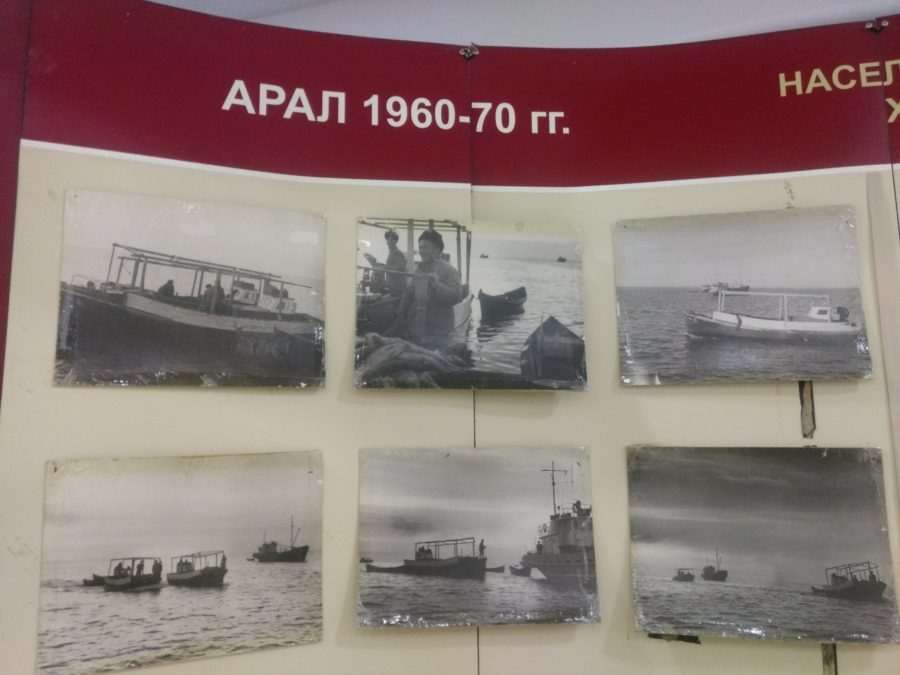
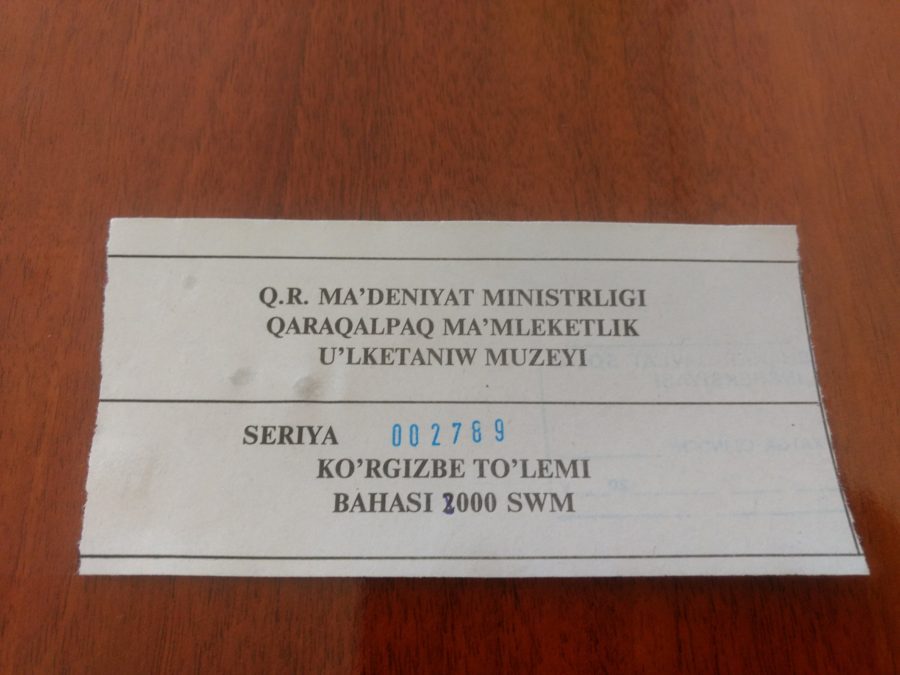
Alternative accommodation in Moynaq
There is a relatively new looking guesthouse on the main street, Hostel Muynak – also known as Abeskun-Tur. The menu boards outside promised so much but after standing there for 10 minutes waiting for someone to acknowledge us, we gave up and walked out. A guy then came chasing us up the road but we decided that was too little, too late!
We later met a Polish biker who stayed there. He paid $12 for the night, with no breakfast but with registration.
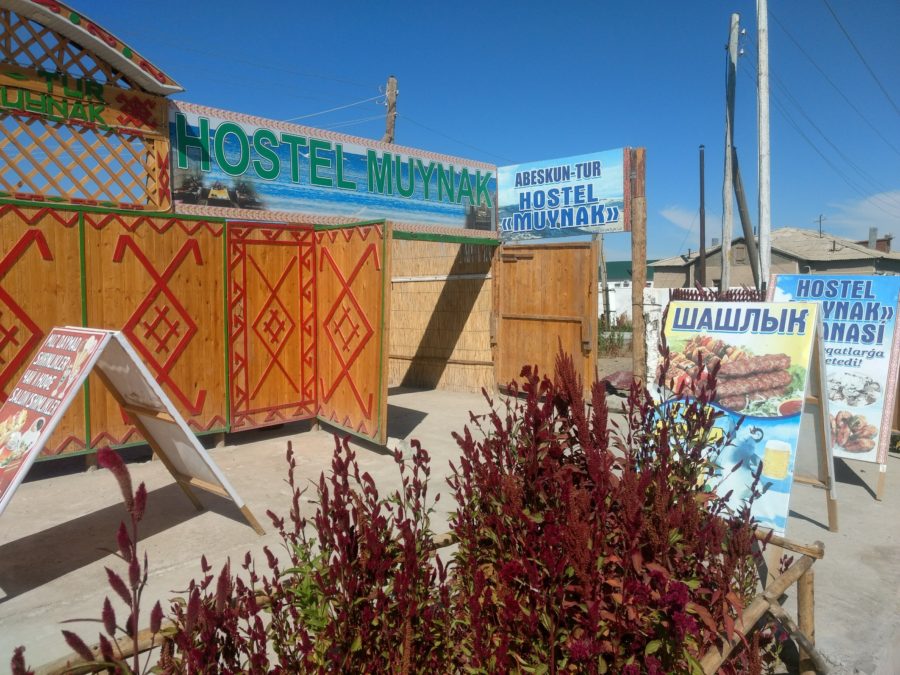
Transport from Moynaq to Nukus
The return bus from Moynaq to Nukus leaves at 3pm – get there by 2:30 to make sure you have a seat. We ended up sitting at the bus terminal area for 2 hours in the sun, reading our guidebooks. We couldn’t see anywhere to eat around there but luckily had some apples.
Some people do the whole trip in a day, taking the 9am bus to Moynaq and spending 2 hours at the lighthouse and ship graveyard. The main issue with this is that the light isn’t the best for taking photos, as can be too bright. Photos can then look washed out and might need a filter.
We thoroughly enjoyed our stay at the yurt camp, and are pleased we took the time and effort to go to Moynaq.
Tips for staying in Nukus
Accommodation in Nukus
There is a 4-bed yurt in the courtyard at Jipek Joli hotel in Nukus. This was US$ 10 + $2 city tax per person including a tasty breakfast. We had to haggle for it as the original price was US$ 17 each, but is the cheapest bed in town. The food is ok but beware as they add a sneaky 15% service charge that isn’t shown on the menu! It can be noisy in the yurt so wear ear plugs. Jipek Joli will store your luggage but it’s kept in the foyer which doesn’t seem that safe.
The cheapest room we found was at Massaget Hotel, just up the road from Jipek Joli. With some gentle bargaining we got them down to US$ 35 for a clean and modern double room with ensuite and TV, which included registration but not breakfast. If the yurt wasn’t so much cheaper we’d have stayed here.
Transport from Nukus to Khiva via Urgench
Nukus to Urgench – 35,000 som per person in a shared taxi from the southern bus station
Urgench to Khiva – 4,000 som in a marshrutka or 1,200 som if the slow trolleybus is running
Questions and comments welcome
If you have any questions about visiting Moynaq, please feel free to comment below.
Other posts
If you want to read more about our travels in Central Asia, check out these posts:
Why you should visit Astana in 25 photos
Like this Post? Pin it
